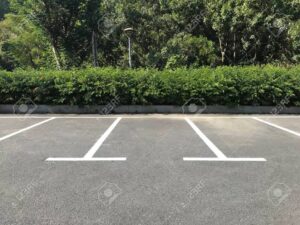Purchasing your own land instead of leasing a building or a floor can be very advantageous. Buying land means that you will have a brand new building on the site, fully customized to your preferences and needs. This is contrary to leasing an existing building, which can be hectic to customize. In this article, we discuss some of the things you should consider before buying land for commercial real estate.
The Condition of the Land
It is always important to know the condition of the property. Focus on various aspects like the wear and tear of the land. Besides, check for any environment issues that the land might have. There are many factors that can affect the quality of a commercial space. For example, if the previous owner did not dispose the chemicals properly, it might cost you a lot of money to fix the situation. It is also important to find out whether the property contains lead paint or asbestos. With such information, you won’t have to continue paying for abatements and other subscriptions used by the previous owner.
Location
The location of land is very important. For commercial businesses, they must be located near financial hubs to grow. It is important to go for land that is easily commutable for employees and convenient for customers. It should also not be too far from suppliers. If you are targeting businesses that do a lot of shipping and supplies, then you need to go for land near highways or shipping lanes.
Grading
It is important to identify the kind of uneven ground or sloping your potential property has. Determine the amount of work it will need before it can host a building. There are certain plots that have been left unattended for a long time. Such spaces grow untidy and in many cases, grow trees. Before starting the building process, you will have to cut down the trees first. Keep in mind that cutting down a large tree costs around £3000. Such additional expenses can make the entire plan difficult to execute. It is, therefore, essential to keep the land work in mind when comparing sites. Don’t be dubbed by slightly cheaper properties—it could cost you more especially if grading work is needed.
Market Value
Many businesses purchase properties with the intention of selling it later when the value increases. However, they end up getting stuck with the property when the value fails to increase as predicted. It is crucial to check out for such pitfalls when looking for a property. Doing sufficient market analysis helps eliminate this problem. This will help you know the market value of your property, and make decisions accordingly. You can end up purchasing expensive land but it can save you quite a bit of headaches later on. Accounting for the needs of future buyers can be very lucrative and rewarding.
Parking Space
In the 21st century, inadequate parking space can easily drive customers away. It is important to ensure that you have sufficient space for both employees and visitors to park. Check out the size of land and determine whether it is big enough.

Zoning
It is important to know the type of zoning your business needs. After that, ensure that the location in question allows you to do what you need on the site. Every business has its own needs. For example, a manufacturer looks for industrial space while an accounting firm will need commercial office space. It is prudent that you familiarize yourself with the local zoning laws and see if there are any restrictions or limitations.
Accessibility
Your property needs to be easily accessible. You could be setting yourself up for a lawsuit if your property cannot be accessed by people with walking disabilities. It is recommended that you set up the property in the best way possible. Easier accessibility means that most people will be able to reach the building. Most businesses look for this feature before leasing a building.
Neighbors
There are many ways the adjacent properties can affect the value of your property. Nearby infrastructure construction and road network can help trickle traffic to your site. Note that these are long term projects. Businesses that depend on customers coming to the premises would not prefer being near a factory that emits bad odors or chocking gases. Instead, they will prefer a calm environment that condusive for such businesses.
The Extra Fees
There are many factors that insurance rates depend on. Some of them include location in s high-wind zone, close proximity to water, or considerable distance from a water source. Notably, secondary costs like these ones can significantly increase the cost of a property. Avoid being dubbed by initially cheaper prices that later go up due to extra fees.
Conclusion
There are many factors that you need to consider when buying land for commercial property. Some of those issues have been discussed here, and it’s up to you to use them in choosing an ideal commercial property.
